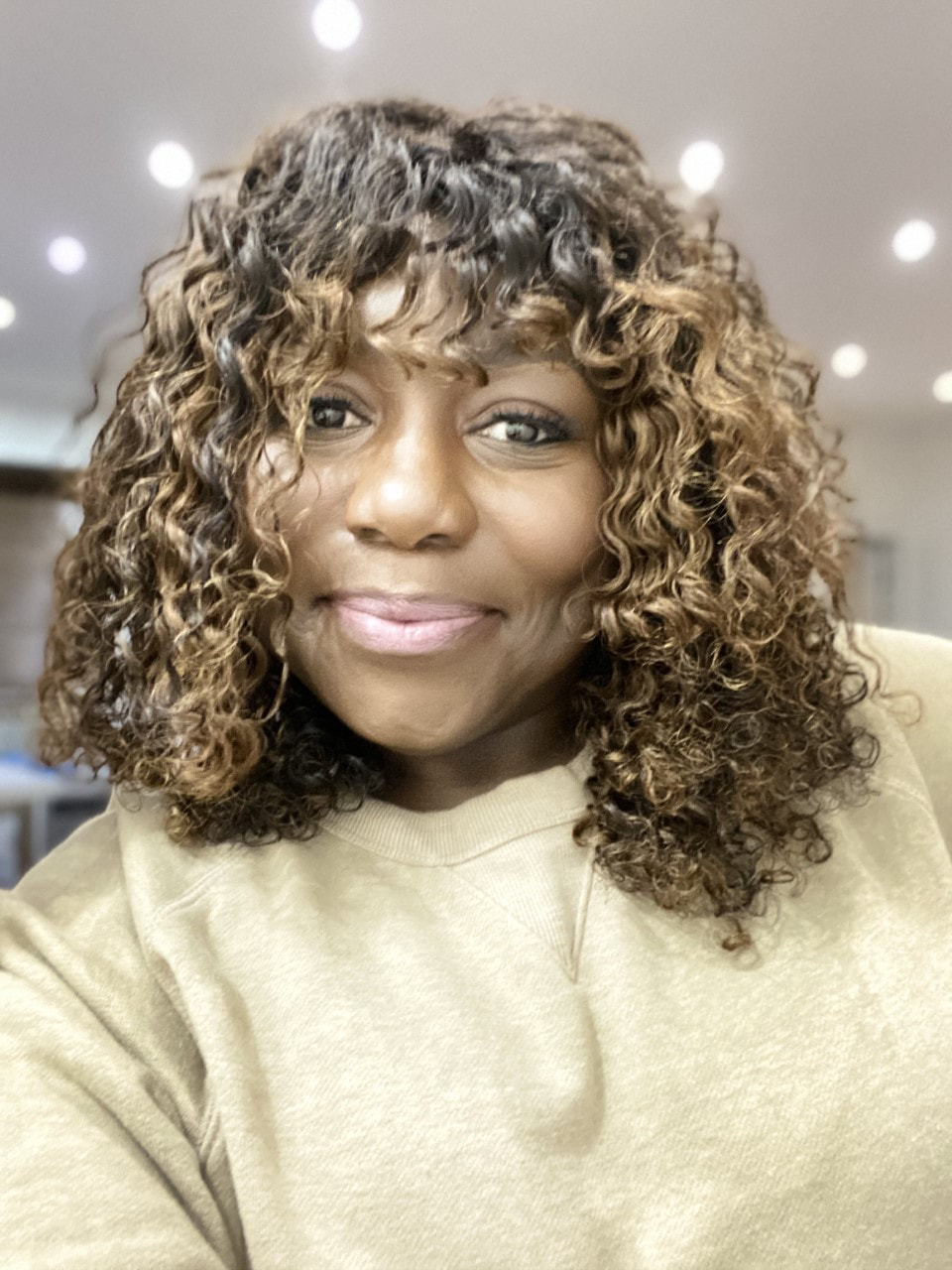I was never one to care much what people thought until now. I lived my life freely and boldly, but people’s perceptions and expectations really weighed on me after my diagnosis. And sometimes it’s my own perceptions that trouble me, whether constantly contemplating my situation, questioning my decisions, or tempering my feelings from some degree of shame. This is an extremely difficult space to be in for those of us unaccustomed to being vulnerable. And a struggle even more so for people of color.
I thought the worst part of being diagnosed was actually hearing for the first time that I had cancer. I heard those gut-wrenching words, “you have cancer,” in January, at the beginning of a new year that promised to be full of travel and career plans. Though I was baffled as to the cause of my cancer, I knew I was strong, and I told myself I was going to get through treatment just fine.
So brave, strong, confident me just carried on, giving my all, both at my demanding job and at home with my husband and toddler daughter. I thought, if anyone can do this, I can. But right before starting chemo, my warrior spirit broke. It happened on one quiet Sunday afternoon the week I was due to start chemo. And in preparing my mind, body, and spirit to face the ordeal, I asked my husband to shave off all of my hair because I did not want to bear seeing my hair fall out in clumps. After all, each of us knows our limits and what we can handle.
And with my bald, freshly shaven head, my sweet, innocent daughter looked me in the eyes and asked, “Are you still my mommy?” and as I wondered why she would ask that, she said, “Because you have a hairstyle like Daddy now.” That’s the moment when my soul just sunk, and in that moment …brave, strong, confident me was no longer brave because I was aware of all the other physical changes to come.
Then, 2 ½ months into chemo, I succumbed to all the side effects of chemo. I had to temporarily quit work and could physically no longer do the things I thought made me a good wife and mother. I was left vulnerable for the first time in my life. Chemo even took the stubs of hair which remained on my head, my skin and complexion changed, my tongue turned black, my eyesight became blurred, my body and joints ached so much that I couldn’t stand or walk, and then neuropathy set in …. A pain unlike any other. It wore me out and broke me down, and strong, confident me was no longer strong. I wondered how much more I could possibly endure.
I now see the irony of my teenage prayers, when I asked God for smaller breasts and no periods. Breast cancer is not how I imagined that my prayers would be answered. As the saying goes, be careful what you wish for. Breast cancer impacted almost everything that makes me feminine. Mastectomy took my breasts, hormone therapy stopped my period, chemo made me bald, the combination could cause infertility, significantly decreasing one’s chances of becoming a mother. All this made me struggle with my identity. So, confident me, not quite so confident anymore.
Furthermore, as a black woman, I can talk firsthand about ancestral trauma, suppressing one’s feelings and the traditional practice of not talking about family secrets. It’s almost as though my identity is forever influenced by my family’s past struggles, and the constant fight to strive to exceed society’s expectations, set by whom? Steeped in historical oppression and the desire to be seen as equals, has in some inverse caused us to self-impose superhuman unrealistic personas, now stereotypical. All in hopes that the strong black woman defeats the vulnerable black woman, the enduring black woman overshadows the resourceful black woman, and the reverent black woman constrained from becoming the angry black woman, even when warranted. Can you imagine having a disadvantageous start in life, then dealing with biases and preconceived notions, and yet having to work against a disparate socio-economic system? How conflicted you become when hit with a fatal stigmatic extortionate disease like cancer.
But when trauma is tied to physical changes, as is often the case after chemotherapy, radiation, and mastectomy, the secrecy of cancer becomes a burden. And nothing worsens emotional trauma like a physical manifestation. Because this is the point where one starts to understand the societal stigma around cancer, and hopelessness closely follows. As minorities from black and brown communities, we don’t share our stories, but there might actually be healing and self-advocacy in sharing, a daunting but nonetheless brave and selfless act. My preferred medium to express and find myself is music. Music has been my therapy, and a form of self-declaration.
Sounds simple, yes, but music has had a resounding impact on my life. My journaling has morphed into songwriting, and I’m currently working on a song called “Damaged Goods”. It basically sums up some of what I just shared about the physical and emotional effects of cancer. My hope is that this song reminds us that though we may be damaged goods, we are not expired goods, and there is some hope in that, and a lot left to love.
Note: Because music is my therapy, the title of this article references the song ‘Crawling’ by Linkin Park




Leave A Comment